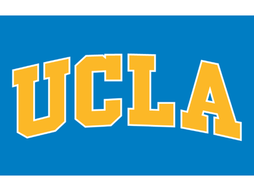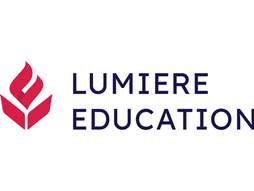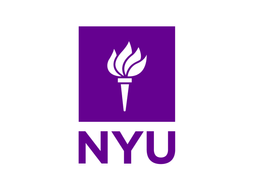Everything You Need to Know About Starting Out With Research in High School
If you are passionate about a certain subject, doing research in that field is a fantastic way to explore your interests, set the building blocks for a future career, and stand out on college applications. However, for many students, the idea of conducting research seems daunting and inaccessible while in high school and the question of where to start remains a mystery. This guide’s goal is to provide a starter for any students interested in high school research.
Research experience for high school students: Why do research?
Research is a fantastic way to delve into a field of interest. Research students at Lumiere have investigated everything, from ways to detect ocean health, new machine learning algorithms, and the artists of the 19th century. Engaging in research means you can familiarize yourself with a professional environment and develop high-level research skills early on; working with experts means you might discover things you may have never dreamed of before. You are given a valuable opportunity to think ahead and ask yourself foundational questions:
“Is this what I want in a future career?”
“What do I like and dislike about this process?”
As a huge plus (and do not underestimate the value of this!), you will likely gain extremely valuable connections, mentors, and recommenders in working closely with your team.
Let’s face it, the college selection process is becoming more and more competitive each year and admission teams are always looking for new ways to distinguish strong candidates. Doing a research project shows that you are someone with passions and, more importantly, someone with a willingness to take the extra step and explore those passions. You showcase your abilities, ambition, work ethic, eagerness to learn, and professionalism, all at the same time. This will no doubt help you when the time for college applications rolls around.
How to do research in high school: finding opportunities
Now that we’ve covered the ‘why’, let’s cover the ‘how’! There are two ways you can go about this, and it’s a great idea to run these in parallel so that one can serve as a backup for the other.
1. Identify research opportunities and apply strategically: Some opportunities are recurring programs. Usually, these are advertised. These can be structured research programs or internships run by universities, non-profits or government departments.
Organization and preparation were key to my own application processes, so be sure to start thinking ahead. Note that most research programs take place in the summer and require applications that are due by January or February. Make a spreadsheet of programs you’d be interested in and take note of their application deadlines, cost, required materials, etc. Applications often have you write essays and submit recommendation letters, so you want to think about those in advance as well.
2. Cold email to find research opportunities that are not advertised: Another way to pursue research outside of the programs is to try contacting people directly and get involved in their research projects. This would mainly involve university faculty, but you might also find a mentor elsewhere; for instance, if you are interested in medical work, you could contact someone at your local hospital. If you are interested in government, you might reach out to your local representative. If you don’t have any personal connections with faculty members in your field, cold emailing them is the way to go. You’ll need to email a lot of researchers; chances are some are busy, some aren’t in need of interns, and some simply don’t check their emails. To up your chances, you should try reaching out to at least 25 people of interest.
For cold emailing, you’ll be asking for opportunities that may not be advertised. You’ll need to prepare an “email template” of sorts that you’ll be sending out to everyone. It should start with an introduction—who are you, where are you from, how do you know this person—and include a set of your skills and interests that you could bring to the table. Keep this email short, friendly and to the point. Don’t be afraid to follow-up if they don’t respond within the first two weeks! Your message might have just gotten lost in their inbox. You’ll also want to update your resumé to attach to the email be sure to include any relevant coursework, accomplishments, and experience in the field.
Types of research opportunities for high school students
1. Do a structured research program in high school
Structured research programs are excellent ways to gain experience under some top researchers and university faculty, and often include stays at actual labs or college campuses with a wide variety of peers, mentors, and faculty. Examples of some competitive research programs include Research Science Institute (RSI) hosted by MIT, the Summer Academy for Math and Science (SAMS) offered by Carnegie Mellon, and a program hosted by the Baker Institute at Rice University for students interested in political science. For more options, here’s a list of 24 programs for this upcoming summer that we’ve compiled for you!
Another great way of deep-diving into an area of your interest and doing university-level research is through 1-1 mentorship.
Founded by Harvard and Oxford researchers, Lumiere offers its own structured research programs in which ambitious high school students work 1-1 with top PhDs and develop and independent research paper.
Students have had the opportunity to work on customized research projects across STEM, social sciences, AI and business. Lumiere’s growing network of mentors currently has over 700, carefully selected PhDs from top universities who are passionate about leading the next generation of researchers. The program is fully virtual! You can find the application form here.
Also check out the Lumiere Research inclusion Foundation, a non-profit research program for talented, low-income students.
Veritas AI has a range of AI programs for ambitious high school students, starting from close-group, collaborative learning to customized project pathways with 1:1 mentorship. The programs have been designed and run by Harvard graduate students & alumni.
In the AI Fellowship, you will create a novel AI project independently with the support of a mentor over 12-15 weeks. Examples of past projects can be found here.
2. Work with a professor in high school
Research typically asks for an advisor, professional, or mentor. So how does someone end up doing research with a researcher in high school? The very first thing you need to do is identify an area of interest. If you really enjoy biology at school, perfect. If you find history fascinating, you’ve found your topic. The important thing is that you’re truly interested in this area; any discipline is fair game!
3. Participate in competitions and fairs
There are many research competitions and fairs available for high school students to participate in. For example, the Davidson Institute offers cash scholarships for student projects in science, technology, engineering, mathematics, literature, music, or philosophy. The Regeneron International Science and Engineering Fair is a particularly well-known competition for students who have completed independent research projects. Research fairs are a great way to motivate students in pursuing their own interests, showing initiative and drive. Winning a competition also looks great on a resumé! Check out Lumiere’s guide to research competitions here.
4. Pursue your own passion projects
A passion project can mean more than just a presentation made for competition. For example, a student I know created an app to track music trends at our school and then analyzed the data on his own—just for fun! It was a great story to include on his future internship applications. Take a look at Lumiere’s guide for passion projects here.
5. Write a research paper
Once you’ve pursued your own research project, writing a research paper is a next great step. This way, you have a writing sample you’ll be able to send to colleges as an additional supplement, or to labs and researchers for future opportunities. It’s also a fantastic exercise in writing. We know that many high school students might struggle with learning how to write a research paper on their own. This is something you might work with your high school science teacher on, or with the guidance of a Lumiere mentor.
6. Research internships
These can be standalone or part of a research program. In looking for a more structured research experience, a research internship can be particularly valuable in building strong foundations in research. There are always tons of internship opportunities available in all different fields, some as specific as medical research. If you are wondering how to get a research internship in high school, then check out our blog posts and apply!
Things to keep in mind when working with a researcher.
You’ve gotten into a research program! Now you want to do the best job possible. There are a few things to keep in mind while conducting research.
1. Maintain a professional and friendly demeanor
Chances are, there are many things you don’t know or haven’t learned about this field. The important thing is to keep an open mind and remain eager to learn. Don’t be afraid to ask questions or to offer to help with anything, even if it’s not in your job description. Your mentor will appreciate your willingness to adapt, follow procedures, and engage with challenging material.
2. Keep track of what’s happening
Open up your notes app or get a small journal to remember what has happened in each step of the process. I remember the hardest part of writing my college essays was the very beginning: trying to come up with a list of memorable moments to talk about. If you’re looking to write about your research experience in your college application, you need to remember the moments where you struggled, where you learned, where you almost gave up but didn’t, where you realized something, even the moment you first stepped into the lab! If you are given feedback: write that down! If you are asked to reflect on everything you learned: write that down! This will be incredibly important for now and for later.
3. Ask questions
Not only is your mentor there as a potential future recommender, but they are also there to help you learn as much as possible. Absorb as much as you can from them! Ask as many questions as you can about their career, their previous research, their education, their own moments of realization, etc. This will help you discover what this career really entails and what you might look for in navigating your own future career.
Making the most out of your research: How to publish a research paper in high school
A question we often get is whether or not you need to publish your research for you to mention it in your college application. While the answer is no, the experience is a great one to have and definitely allows your work to stand out amongst your peers. Lumiere has published a complete guide to publishing research in high school here. What’s important to keep in mind is that there are various journals that specifically accept high school research reports and papers, such as the Concord Review or the Journal of Emerging Investigators. In our articles below, we go through a detailed guide of what these journals are and how a student might best approach the submission process.
Useful guides for publishing a research paper in high school
Conclusion
Research is an incredibly rewarding learning experience for everyone. While high school may seem early, it’s always better to start sooner rather than later, both for your college applications and for your own personal progress. Although the process may seem daunting at first, we hope we’ve broken it down in a way that’s simple and digestible. And if you want extra support, the Lumiere Research Scholar Program is always here to help!
Amelia is a current junior at Harvard College studying art history with a minor in economics. She’s enthusiastic about music, movies, and writing, and is excited to help Lumiere’s students as much as she can!









